Hudson's Bay
Brief Synopsis
Cast & Crew
Irving Pichel
Paul Muni
Gene Tierney
Laird Cregar
John Sutton
Virginia Field
Film Details
Technical Specs

Synopsis
In 1667, French-Canadian trapper Pierre Esprit Radisson and his friend, Médard Chouart Sieur des Groseilliers, who is called "Gooseberry," try to interest the English governor of Albany in investing in a fur-trapping company centered in Hudson's Bay. Suspecting that the pair are rogues, the governor has them tossed in jail, where they meet Lord Edward Crewe. Edward, an English nobleman, was banished from England by Charles II due to his drunken pranks and Charles' desire to use his lands to rebuild London after the great fire of 1666. Edward convinces Radisson and Gooseberry to help him escape, and after reaching Montreal, they in turn persuade him to put up the capital for their expedition. Led by Orimha, Radisson's Indian foster father, the trio journey to Hudson's Bay, where they spend the winter trading with the Indians. As the months pass, Radisson tells Edward of his dream of a united Canada, in which white men and Indians work together to enrich the land. Radisson also explains that the Indians should be given needed trade goods for their furs, rather than useless trinkets or brandy. Upon their arrival at a French settlement, Radisson and the others are angered when the French governor, D'Argenson, seizes their furs as "payment" for fines enacted that morning. Resolving to interest King Charles in their venture, Radisson and Gooseberry steal back their furs and travel to England. Edward, nervous about Charles' reaction to his unsanctioned return to England, first takes his friends to meet Prince Rupert, the king's cousin. Impressed with Edward's success, Rupert escorts the trio to see the king, who forgets his anger after hearing Radisson's tales of the riches of Hudson's Bay. Not wishing to give the company an official charter until they have brought him 400,000 pelts, Charles allows Radisson to return to Hudson's Bay with more men, including Gerald Hall, the spoiled brother of Edward's sweetheart Barbara. Back in Hudson's Bay, the men establish their first trading post, Fort Charles. Tired of the cold and hard work, Gerald complains about having to travel furthur, and so Radisson leaves him at Fort Charles while he pushes on. One night, a wounded Indian arrives at Radisson's camp and informs him that after Gerald paid a band of Indian trappers with brandy, they went crazy and stole from a peaceful group in order to get more alcohol. Radisson rushes back to the fort, where he finds a drunken Gerald and an infuriated Orimha, who tells him that there will be a great Indian war unless Gerald is made to pay for his crime of inciting violence. Despite Edward's warnings that he will be hanged for murder, Radisson allows Gerald to be shot by a firing squad. Radisson, Gooseberry and Edward then escort the pelts to England, where Charles arrests them after hearing the story of Gerald's demise. Charles is compelled to reconsider, however, when he learns that Radisson instructed Orimha not to trade with the English if he does not return to Hudson's Bay. The trio are freed after Barbara reveals that she has forgiven them for Gerald's death, and she is then reconciled with Edward, while Radisson and Gooseberry exit the room singing.

Director

Irving Pichel
Cast
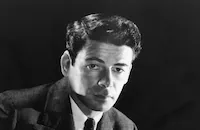
Paul Muni

Gene Tierney

Laird Cregar
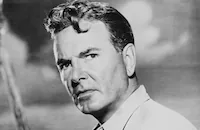
John Sutton
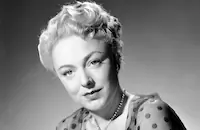
Virginia Field

Vincent Price
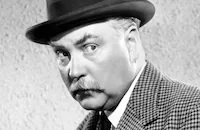
Nigel Bruce
Morton Lowry
Robert Greig
Chief Thundercloud
Frederick Worlock

Florence Bates

Montagu Love

Ian Wolfe
Chief John Big Tree
Jody Gilbert
Denis Green
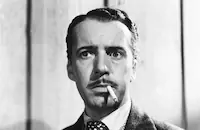
Boyd Irwin
Montague Shaw

Eily Malyon
Lionel Pape
Lumsden Hare
Tony Urchel
Jimmy Spencer
Harry "silverheels" Smith
Andrew Peña
Joe E. Molina
Bob Lugo
Boone Hazlett
Sonny Chorre
Bob Milton
Tom Keegan
Don Ackerman
Crew
Art Arthur
Travis Banton
George Barnes
Alfred Bruzlin
Richard Collins
Richard Day
James C. Havens
Roger Heman
Wiard B. Ihnen
C. Bland Jamison
William Koenig
C. Lavallee
Thomas Little
Harold Lloyd Morris
Kenneth Macgowan
Peverell Marley
Alfred Newman
Aaron Rosenberg
Robert Simpson
Lamar Trotti
R. Stanley Weir
Clifford Wilson
Darryl F. Zanuck

Film Details
Technical Specs

Quotes
Trivia
Notes
The working title of this film was Hudson's Bay Company. A studio billing sheet also lists The Renegade as a working title. As noted in the onscreen credits, the picture is based on incidents from the life of Pierre Esprit Radisson (c.1636-c.1710), a French-Canadian fur trader and explorer. Along with his brother-in-law, Médard Chouart Sieur des Groseilliers (1618-c.1690), Radisson explored the Great Lakes region between 1659 and 1660 and spent a profitable winter acquiring furs. Although they were fined for trading without a license, Radisson and Groseilliers continued their explorations and in 1665 went to England. There, they enlisted the aid of several English gentlemen and returned to Hudson Bay in 1668. Their successful enterprises led to the granting of a royal charter for the Hudson's Bay Co. by King Charles II in 1670. A few years later, Radisson left the company and joined the French Navy. After assisting in the French's seizure of Port Nelson in Hudson Bay, he returned to the company and served as the superintendent for two years in the late 1680s.
According to information in the MPAA/PCA Collection at the AMPAS Library, David O. Selznick first expressed interest in making a feature film concerning the Hudson Bay Company in September 1936. Twentieth Century-Fox also registered a title pertaining to the company with the Hays Office in 1936, and in 1937, Selznick released his interest in the title to Fox. Letters in the collection indicate that in 1937, Paramount was also considering a film about the trading company, which was to have been directed by Cecil B. DeMille. An November 11, 1937 Los Angeles Examiner news item reported that DeMille intended to star Fred MacMurray in the picture, which was to be shot on location in Canada. The news item also noted that DeMille's longtime writer, Jeanie MacPherson, had already begun work "on the necessary research."
An August 11, 1937 Hollywood Reporter news item noted that writers Michel Jacoby and John Taintor Foote were working on the Hudson's Bay Company screenplay for Twentieth Century-Fox. According to the Twentieth Century-Fox Records of the Legal Department and Produced Scripts Collection, located at the UCLA Arts-Special Collections Library, Jane Murfin, Curtis Kenyon, Eleanore Griffin and William Rankin also worked on early versions of the film's screenplay. Studio records indicate that it is unlikely, however, that these writers contributed to the final picture. On February 8, 1939, Hollywood Reporter announced that the studio had "shelved" the project "because of its belief that the feature would have a weak box office pull at the present time." The item also noted that Tyrone Power had been set to star in the vehicle. A July 1, 1940 conference with executive producer Darryl F. Zanuck, contained in the studio records, indicates that Zanuck was considering starring either Don Ameche or Dean Jagger as "Radisson" and Richard Greene as "Edward." On July 9, 1940, Hollywood Reporter announced that Henry Fonda had just been set as the film's star. According to the studio records, background scenes were shot on location at McCall, ID, and some scenes were to be filmed at Big Bear, CA, although it has not been determined if that location was utilized.
The picture was Paul Muni's first freelance assignment after severing his longtime contract with Warner Bros. Although the Daily Variety review stated that the film marked the screen debuts of Gene Tierney and Laird Cregar, Tierney made her debut in the 1940 Twentieth Century-Fox film The Return of Frank James, and Cregar had played bit roles in two productions in 1940. Hudson's Bay did feature Cregar's first co-starring role, however. The Variety review, in praising Cregar's performance, called him an actor "for whom there is a distinct and important niche waiting."












